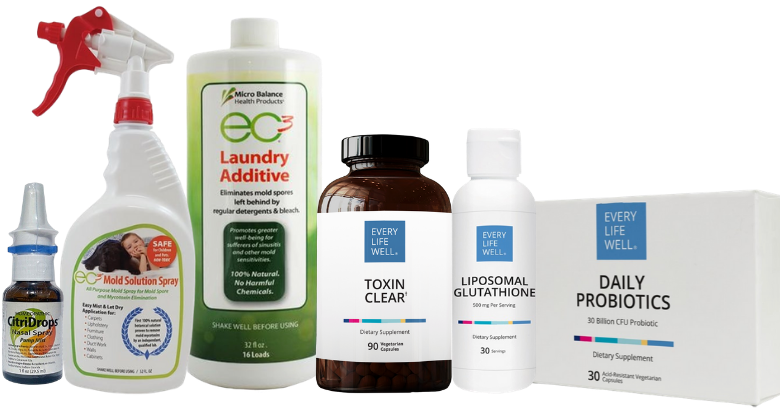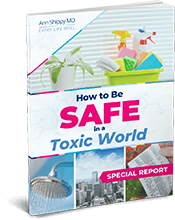Epigenetics Update
Epigenetics remains one of the hottest topics in medicine. This field helps us understand why our genes are not our destiny. Genes on their own don’t tell the whole story; epigenetics, or gene expression, responds to a host of environmental factors.
Epigenetics helps to answer “why?” questions – like why does a poor diet increase biological age? Or why do fruits and vegetables decrease cancer risk? Or why does meditation help you be healthier?
In this update, we will look at some of the new and emerging research in the field of epigenetics and discuss ways you can apply the science to your own life.
You will learn more about:
- Epigenetics and methylation
- Epigenetics and pregnancy
- Epigenetics and aging
- Epigenetics and polyphenols
- Epigenetics and the gut microbiome
Epigenetics Review
Epigenetics is the study of gene expression. How and why genes get turned on or off. We can look at genes related to health and others related to aging and disease.
One mechanism of gene expression is methylation. Methylation is the transfer of a methyl group, a one carbon molecule with three hydrogens. Adding or removing methyl groups at specific DNA sites changes gene expression. Methylation is currently the best way to measure epigenetic changes, known as a DNA methylation clock.
To learn more about the basics of epigenetics and methylation, check out these resources:
- Blog article – Epigenetics 101 – Telling Your Genes How to Behave
- Blog article – Get Better with Age – The Role of Epigenetics and Aging
- Dr. Shippy’s Epigenetics TEDx Talk
The main thing to remember about epigenetics is that we are talking about changes in DNA expression, not the DNA itself. These changes are a part of natural cellular memory and the body’s response to environmental conditions.
Epigenetics and Pregnancy
The environment in the womb during pregnancy imprints epigenetics in the offspring, affecting their health in childhood and adulthood. Environmental factors include air pollution, smoking, and nutrition.
The health of the mother also affects epigenetic imprinting during pregnancy. One example is asthma. It’s been known for a long time that a mother’s asthma is a risk factor for asthma in her child.
A new understanding of epigenetics helps us to understand the mechanism behind this connection.
A child’s genetics is determined by the genes in the egg and sperm of its parents. But the expression of those genes is influenced by the environment in the womb. It appears that the prenatal environment in the womb of mothers with asthma turns on epigenetic pathways in the offspring associated with asthma.
Put this research into practice:
Consider utilizing Functional Medicine testing and devoting at least three months to nine months to eat a nutrient-dense diet and lifestyle change before trying to conceive. Use this time to dial in your nutrition, optimize hormonal health, and address any underlying disease, inflammation, and stress. It’s important to address the health of both the future mother and father for optimal epigenetic expression.
Epigenetics and Aging
Aging is the most significant risk factor for chronic disease, but what if we could slow biological aging to prolong health span?
Chronological age is different than biological age. Chronological age is how many years old we are, but biological age is a measurement of how quickly (or slowly) the body is aging. One way to measure biological age is to measure methylation patterns using a DNA methylation clock.
A recent study looked at aging – and the reversal of aging – using simple diet and lifestyle tools. This study was a pilot study of 43 healthy men between 50 and 72. In the eight-week intervention, half the participants participated in a specific diet and lifestyle protocol and were compared to the control group who didn’t receive any intervention.
The study group followed a plant-forward Paleo-type diet that focused on specific foods containing nutrients needed for methylation, such as leafy greens for folate, beets for betaine, and eggs for choline.
The diet also emphasized polyphenol compounds found in herbs and foods, including curcumin from turmeric, EGCG from green tea, and rosmarinic acid from rosemary. In addition, participants took a phytonutrient supplement and a probiotic.
Participants were also asked to exercise at moderate intensity for 30 minutes at least five days per week, sleep at least seven hours per night, and practice breathing exercises for relaxation.
Those in the study group saw an astounding 3.23-year reduction in their biological age over the two months compared to the control group! This suggests that our daily habits profoundly affect biological age and health.
Put this research into practice:
The basics of health – nutrition, movement, relaxation, sleep, and reducing toxin exposures – are hard to skip over when working to optimize health. All these factors influenced DNA methylation patterns and, therefore, biological age and disease risk. If you don’t have these in place, pick one area to begin forming new habits. Check out the great resources at annshippymd.com for guidance.
Curcumin and Epigenetics
One of the fascinating pieces of the research recently un covered on reversing biological age is using specific nutrients and compounds to support healthy methylation patterns. One of those compounds is curcumin, the bright yellow polyphenol from turmeric spice.
Curcumin has anti-inflammatory, antioxidant, and anti-cancer properties, which lends it to many clinical applications. In addition, curcumin modulates DNA methylation by inhibiting enzymes (DNA methyltransferases) and affecting other epigenetic markers.
When looking at cancer specifically, turmeric (and curcumin) has a long history of use in Ayurvedic and traditional Chinese medicine. Newer research suggests that its success in cancer suppression and as part of treatment approaches may have to do with how curcumin changes the epigenetics in cancer cells.
Put this research into practice:
An easy way to get the benefits of curcumin is to incorporate turmeric into daily recipes.
Here are some of our favorites:
- Turmeric Ranch Dressing
- Carrot Turmeric Citrus Chews
- Cauliflower Rice Buddha Bowl
- Turmeric Tea
- Immune Boosting Turmeric Soup
In addition to dietary strategies for increasing turmeric, curcumin extract can be taken as a supplement.
The Gut Microbiome and Epigenetics
It’s well known in Functional Medicine that diseases often have root causes in the gut. Improving the microbiome enhances whole-body health and decreases disease risk.
More recent evidence on epigenetics helps us understand this connection, and how the microbiome (and genetic material found in the microbiome) influences epigenetics.
One connection we are learning more about is the interactions between the gut microbiome and immune health. Not surprisingly, the epicenter of immune health is in the gut. The gut is a primary site where the body interacts with the environment.
DNA doesn’t just exist in our cells; the microbiome accounts for around 90% of the total genetic material in the body. Our immune system and microbiome have evolved together – we are forever linked and dependent upon each other.
Many immune cells in the GI tract fight pathogens, balance inflammation, and influence epigenetics.
The organisms, including bacteria that live in the GI tract, create metabolites that influence immune cells, including helper T cells and other white blood cells. Helper T cells are a critical part of adaptive immunity and produce cytokines, which are inflammatory messengers.
Research suggests that epigenetic mechanisms that result in an imbalance of the helper T cells may cause and progress intestinal inflammatory diseases, including autoimmune diseases like Crohn’s disease and ulcerative colitis.
When we understand the specific epigenetic drivers, we can also understand how to change epigenetics in favor of more optimal, healthy patterns.
Put this research into practice:
There are various ways to modulate or manipulate the microbiome to improve beneficial organisms and diversity. First, work with a Functional Medicine practitioner for appropriate testing, such as the GI MAP stool test, to understand the specifics of your microbiome. From there, you can personalize your approach to achieve optimal microbiome and digestive health.
Learn more about restoring gut health in this article. Strategies to consider are diet change, prebiotic and probiotic supplements, and lifestyle habits to improve stress resilience.
The pattern of methylation across the genome tells the story of your epigenetics.
The good news is that your story isn’t already written; you get to write the rest of your epigenetic story through how you eat and live daily. What an empowering message! How will you begin to influence your story today?
References













